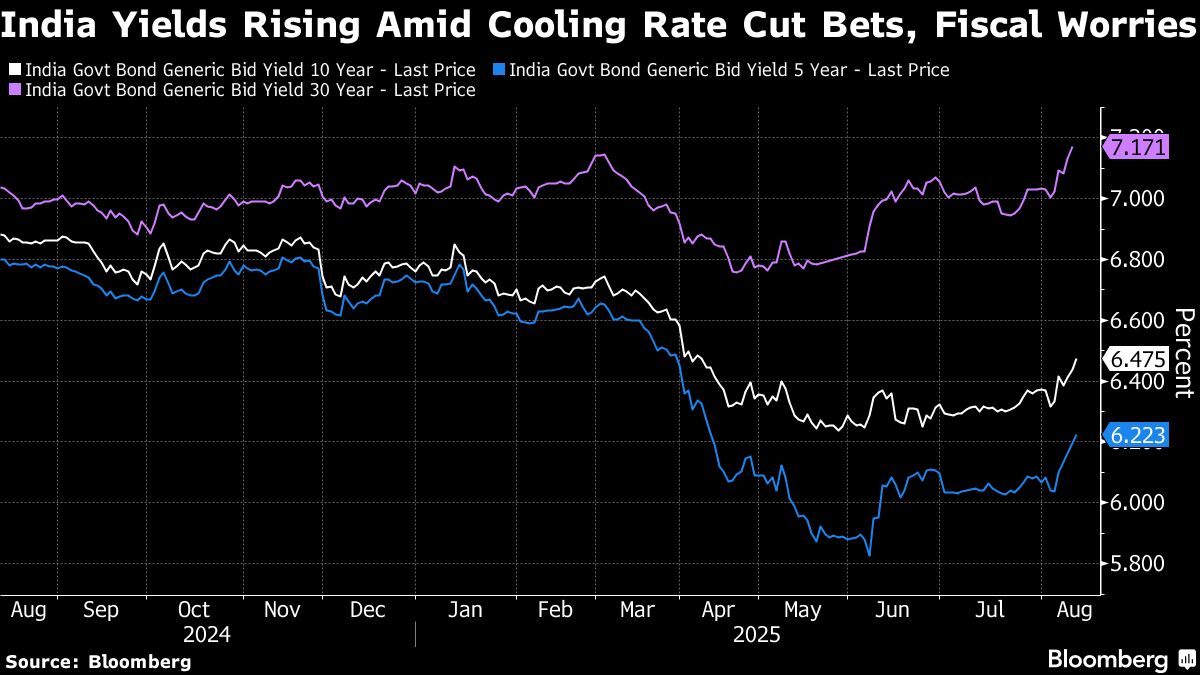
Indian bonds dropped to a four-month low, as analysts warned of further losses amid concerns that the government may increase borrowing to fund a potential fiscal stimulus in response to steep US tariffs.
The yield on the benchmark 10-year bond climbed four basis points to 6.48% on Tuesday, the highest since April. Standard Chartered Plc. forecasts it could rise further to 6.6% by the first quarter of next year. Ten-year yields moved up by nearly 35 basis points from a four-year low seen in early June.
Bond prices continued to decline despite latest data showing retail inflation fell to its lowest level in eight years last month. Traders remain cautious, viewing the dip as temporary after the Reserve Bank of India last week projected a sharp rise in inflation for the first quarter of the next fiscal year — dampening hopes of further interest rate cuts.
“Any further fiscal expansion by the government could lead to additional borrowing, causing a demand-supply mismatch in the bond market and negatively affecting the yield curve,” said Laukik Bagwe, head of fixed income at ITI Mutual Fund.
Supply concerns were evident at a sale of state debt on Tuesday, where higher-than-expected cutoff yields signaled weakening demand. Slowing demand from mutual funds and insurers is weighing on bond prices, further pressured by the absence of debt purchases by the RBI, according to Nomura Holdings Inc.

Concerns over higher government borrowing are mounting as exporters urge the Narendra Modi-led administration to introduce relief measures in response to President Donald Trump's 50% tariffs on Indian shipments to the US. New Delhi last week announced 300 billion rupees ($3.4 billion) of subsidy for state-owned oil firms for sale of cooking gas at below market rates.
The government plans to borrow 14.82 trillion rupees in the current fiscal year to March 2026, marginally higher than the previous year.
The support to the oil refiners amid slowing tax growth is adding up to the “psychological pressure” on the market, said Ashhish Vaidya, head of treasury at DBS Bank Ltd. in Mumbai.
“Market sentiment has sort of broken, and this is likely to continue for some time, at least unless we see some global triggers in terms of growth decelerating,” said Vaidya.
Essential Business Intelligence, Continuous LIVE TV, Sharp Market Insights, Practical Personal Finance Advice and Latest Stories — On NDTV Profit.























